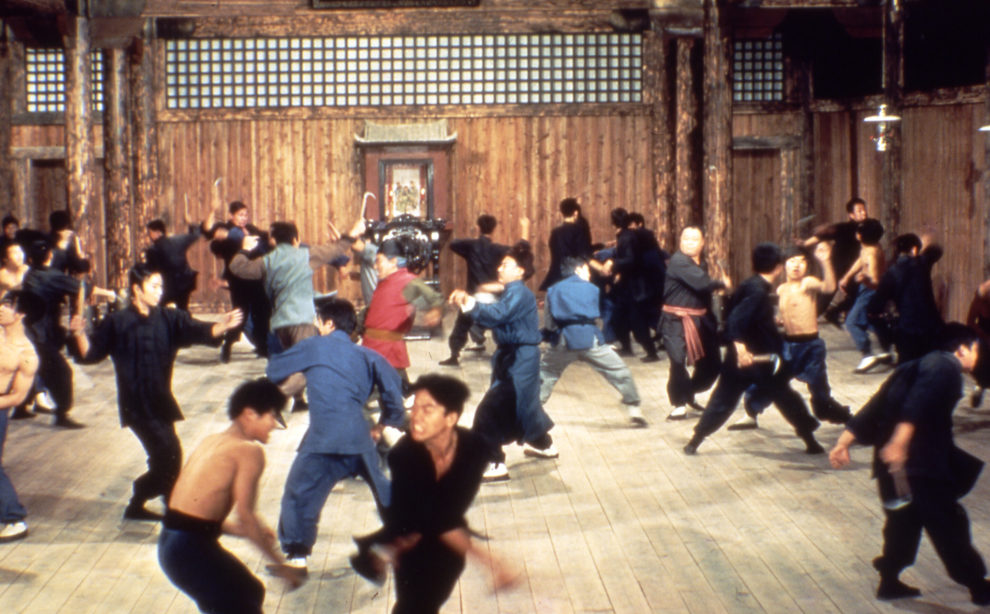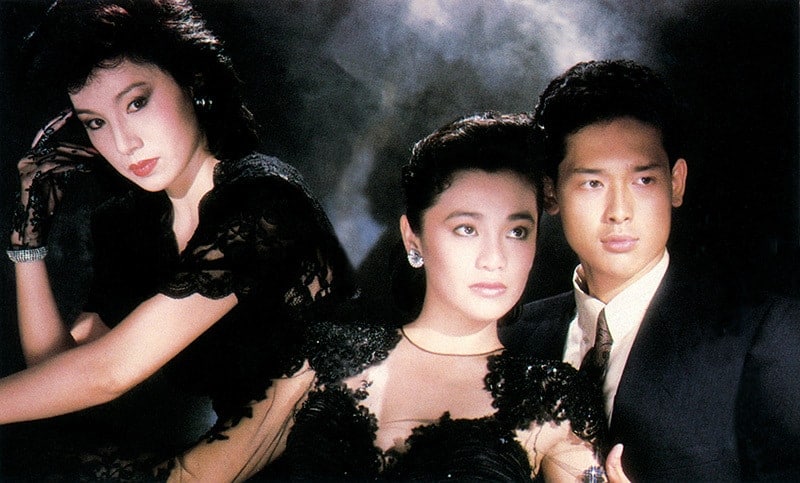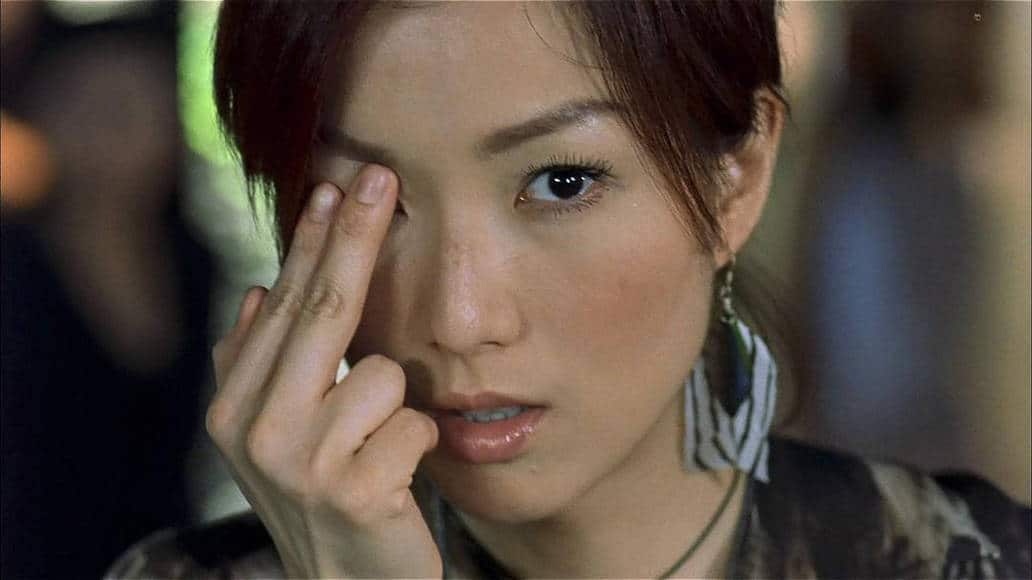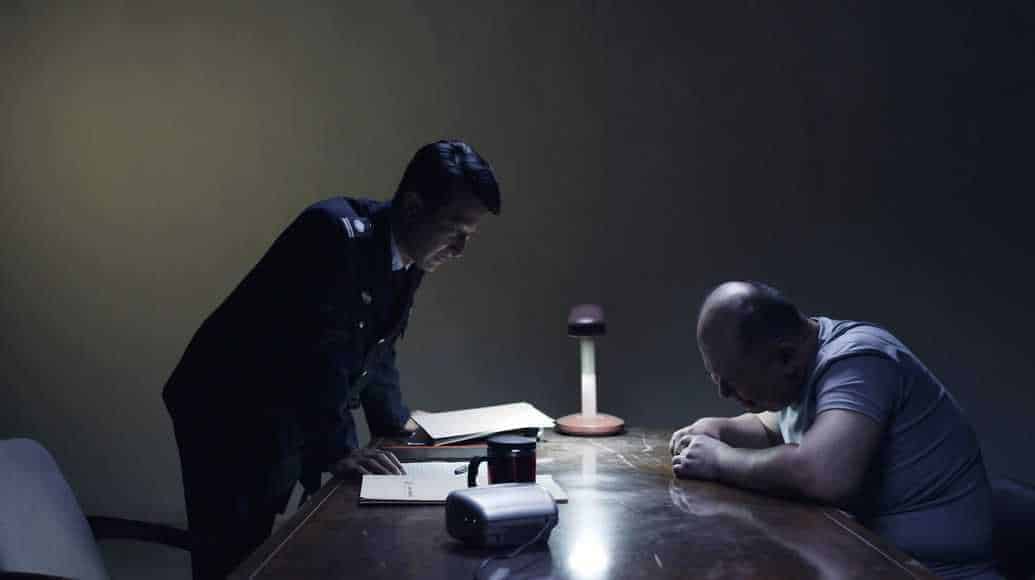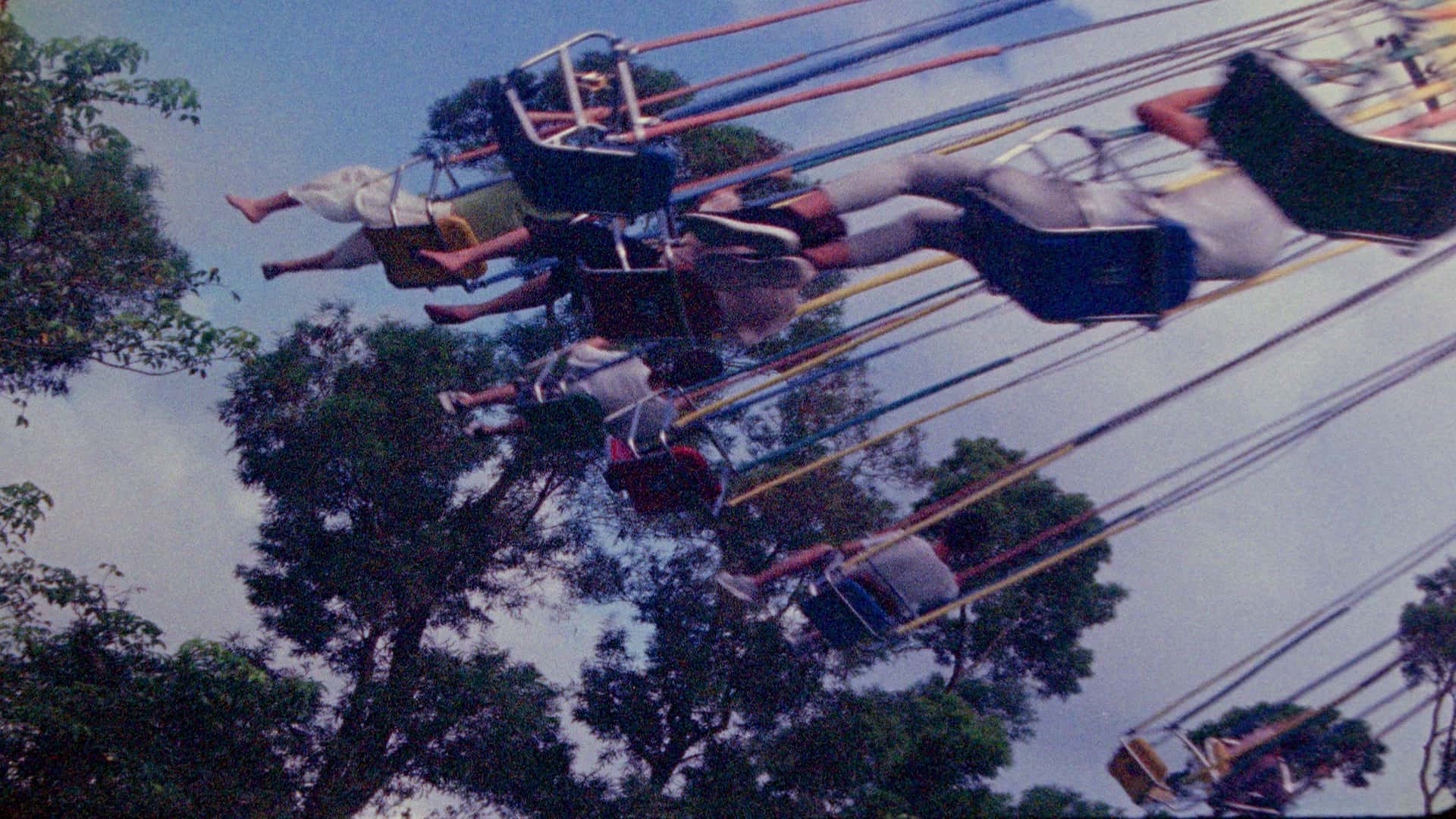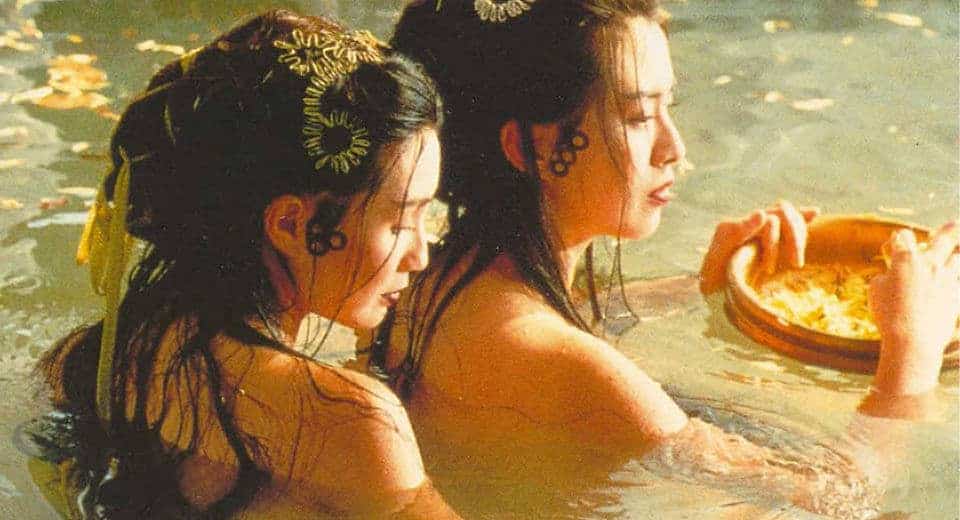As a child, you probably remember the phrase “I can beat you with one arm tied behind my back”. Well this is the film that technically tests that theory out. Released at the beginning of the modern martial arts movie era, it has director\star Jimmy Wang Yu once again losing limbs for the sake of entertainment. Whilst his contribution to the genre may have faded due to what was to follow, it cannot be denied that his work helped set up the template for others to enhance.
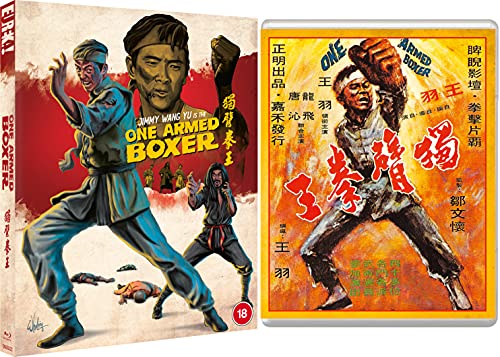
Tien Lung (Jimmy Wang Yu) unwittingly causes a feud to start between his Ching Te School and that of the Hook gang. Whilst Master Han (Ma Kei) tries to sooth things over by punishing him, Chao (Yeh Tien), the leader of the Hook Gang manipulates the situation to his advantage. After several confrontations, he brings in a group of hired fighters and in a brutal confrontation wipes out the Ching Te school with only a crippled Tien Lung left alive. Found and restored to health by a kindly farmer and his daughter Jade (Hsin Tang), he learns how to strengthen his one remaining arm so that he can take revenge on Chao and the thugs who slaughtered his friends.
Undeniably “One Armed Boxer” has dated. The genre has moved on from the basic fighting styles on display here, but what hasn't dated is the invention and utter madness of what unfolds on screen. The villains line up like a 1970's version of the Streetfighter computer games. We have Tibetan monks that channel their inner chi and expand like balloons (Sadly no-one tried to prick them with a pin), Siamese kickboxers, Judo exponents and a badly made up Indian Fakir that does handstands along with a devastating finishing move….the eye poke. The main fighting bad guy (or final level boss) is apparently a Japanese karate fighter that is part vampire and part escapee from a Deep Purple concert due to the shocking fright wig on display. So lethal, he is able to chop off a mans arm in one blow! Chao is more the classic villain as head of the Hook Gang. Like all good bad guys he has no redeeming features along with his students, but worst of all by, bringing in these hired hands from the rest of the orient, he is betraying the virtues of Chinese martial arts.
Jimmy Wang Yu was never the most graceful of fighters even at his peak. A former swimmer, his style was likened to that of a front crawl. Yet he brought an intensity to his roles that adequately compensated. There is also a vulnerability to him that despite his seeming invincibility. In “One Armed Boxer” as in a number of his features, he goes through an almost nihilistic reinvention in order to overcome the odds. Even with two arms he takes a tremendous beating before emerging from the mill fight victorious and survival is the ultimate outcome no matter how the revenge pans out. As a director, he does have a bit of flair. Some handheld work looks really effective but most of the time, it is the standard crash zooms etc. that are staples of the genre.
What ultimately emerges from the film though is utter insanity. This is a flawed feature, let's be completely honest here. Even in 1971, there would have been elements that were laughable. Wang Yu's other arm is visible in some scenes and is also apparent in others that it is strapped behind his back. The special effects are not exactly special. When he springs up after being knocked down I burst out laughing, as I also did in the Fakir's stop motion handstands. This crudity actually adds to its charm, especially when other elements of the genre in it's grindhouse form are included. If you watch the English dub, then everyone is doing their best faux spaghetti western impersonations and contains the immortal line “He's standing on one finger….damn him!”. In my personal opinion this adds to the entertainment value. The Mandarin dub which on reviewing this I saw for the first time lacks this madness but manages to include the theme from “Shaft” over the opening credits as clearly copyright laws in Hong Kong weren't too stringent at the time.
The narrative leaves little time for exposition, with the recovery scenes playing out in montage. Whether this was intentional or whether Wang Yu produced too much footage is debatable as doesn't occur in his other directorial efforts. This streamlining feels odd but does mean that the pace doesn't drag like its contemporaries who would lose interest in the drama along with the audience. So if you don't want exposition and just want action, this is the film for you.
I absolutely love this film. I have no illusions about the quality of the production. It's got bad effects, no character development, villains that to quote Williams from “Enter the Dragon” can be described as “Man, you come right out of a comic book” and dubbing that is for the ages. Yet it entertains so much more than more po-faced examples of the genre. Remember this came at the outset of the Kung Fu boom. So to decry it's basic fighting styles would be harsh. Just embrace the ever increasing lunacy, laugh with it, or at it, but enjoy nonetheless. Is it a classic, heck no. But is it one of the most entertaining? Absolutely!


